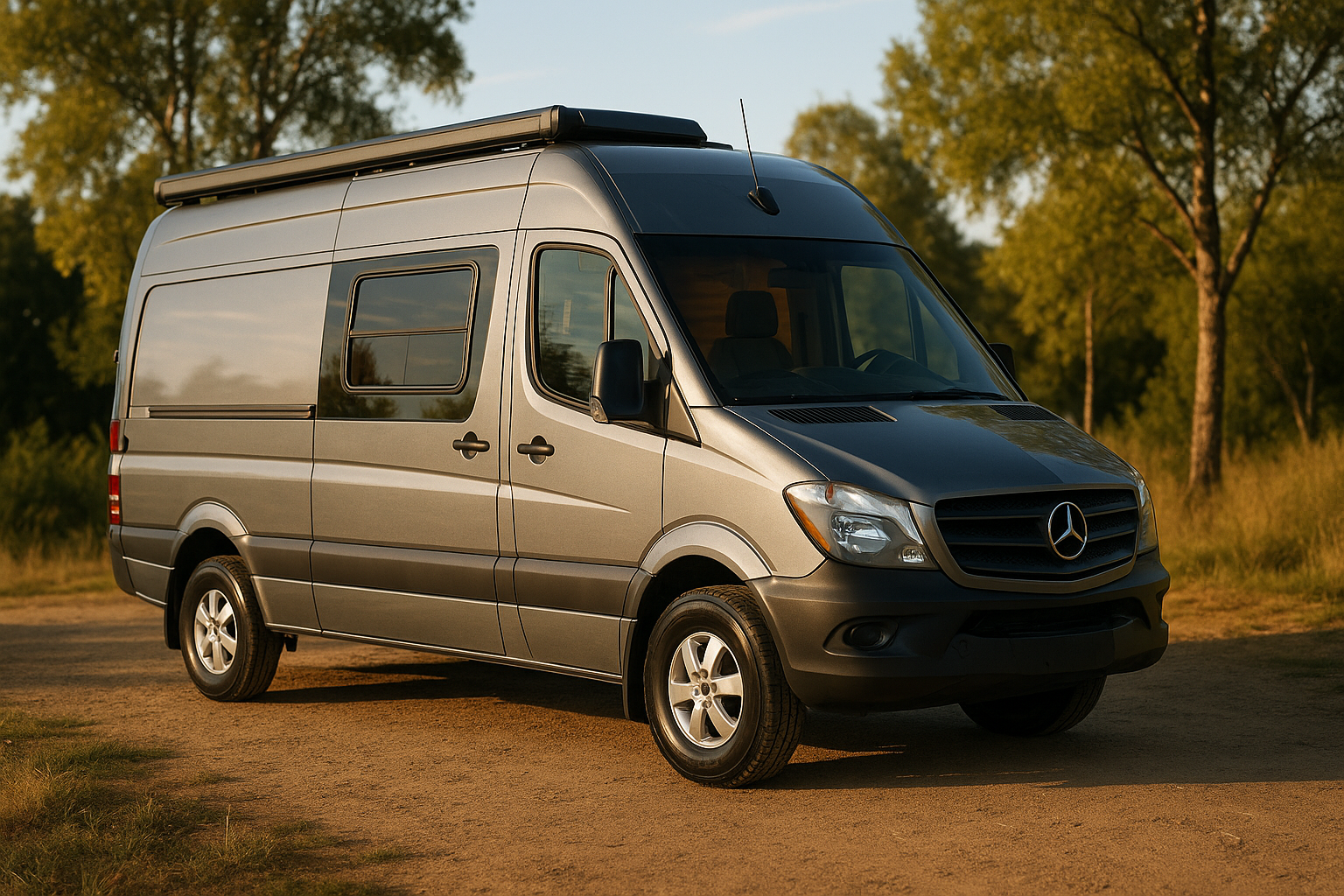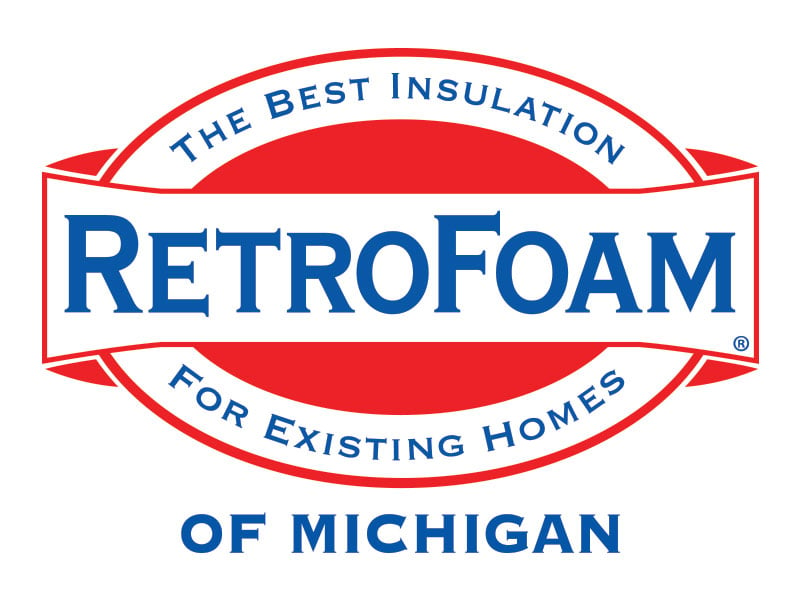What's the Best Insulation for Your Van Conversion?


Whether you're using a Sprinter van as your home away from home or a cargo van to haul tools and gear, the right insulation makes all the difference.
A properly insulated van keeps temperatures comfortable, reduces noise, and protects your equipment or living space.
So, what are the best insulation options for a van? The most common materials include rigid foam board, wool, and closed cell spray foam. Each has its own strengths and drawbacks depending on whether you're insulating a camper, motorhome, or work van.
At RetroFoam of Michigan, we've insulated our fair share of vans, so let's break down the most popular van insulation options and help you figure out which is the best insulation for a camper van, Sprinter van, or van conversion project.
Why Van Insulation Matters
Before diving into materials, it helps to understand how heat moves.
There are three ways heat transfers:
- Radiation - heat that travels through the air, like the sun warming your skin.
- Conduction - heat that moves through solid materials, like the metal walls of your van.
- Convection - heat transfer through liquid or gas, like the air inside your van.
The main issue in vans is conduction, according to Gnomad Home. Metal walls, floors, and roofs conduct heat and cold quickly, leaving your van either sweltering or freezing. The right insulation helps control conduction and keeps your van comfortable year-round.
Foam Board Insulation for Vans
One of the most common questions is: Can you insulate Sprinter van walls using rigid foam? The answer is yes, and it's a popular DIY choice.
Rigid foam board insulation comes in panels made of polystyrene, polyisocyanurate, or polyurethane. It's easy to cut to size and widely available at home improvement stores.
Foam Board Insulation Pros:
- Affordable and easy to find.
- Available in different thicknesses and facings to customize your fit.
- Provides good thermal resistance and helps reduce heat conduction.
Foam Board Insulation Cons:
- Installation can be time-consuming, often taking more than a day.
- Seams between boards must be carefully taped or sealed.
- Polystyrene boards can collect condensation, leading to moisture and potential rust issues.
Wool Insulation for Vans
Wool is another option often recommended for those looking for natural materials in a van conversion insulation project. It comes in thick batts, similar to fiberglass, and can be cut to fit van walls and ceilings.
Wool Insulation Pros:
- Eco-friendly and sustainable.
- Naturally warm and insulating, like wool clothing.
- Treated with a flame retardant for added safety.
Wool Insulation Cons:
- Tends to retain water, which can lead to rust in the van.
- Batts may be too thick and need cutting to size.
- If compressed too tightly, wool loses much of its insulating value.
Closed Cell Spray Foam Insulation for Vans
When it comes to durability and performance, closed cell spray foam is one of the best insulation options for camper vans, motorhomes, and work vans.
Unlike open cell foam, closed cell foam is denser and expands less, making it ideal for metal van walls.
It works as both an insulator and an air barrier in just one step, sealing cracks and preventing heat transfer.
Closed Cell Spray Foam Insulation Pros:
- Creates a continuous air barrier, keeping the van comfortable.
- Extremely durable and can withstand bumps and dings from tools or gear.
- Offers sound dampening to reduce road noise or rattling equipment.
Closed Cell Spray Foam Insulation Cons:
- More expensive than other insulation options when professionally installed.
- DIY kits are available,
but installation can be tricky and risky. - Some foams may emit a temporary odor during application.
How to Choose the Best Van Insulation for Your Needs
Choosing the best insulation for a camper van or motorhome depends on how you plan to use your vehicle.
- For campers and van conversions: Comfort is key, making closed cell spray foam or wool strong contenders.
- For Sprinter or cargo vans: Rigid foam board or spray foam can protect tools, equipment, and reduce temperature swings.
- For motorhomes: Closed cell spray foam offers long-term durability and energy efficiency.
Once you decide if your goal is comfort, protection, or quietness, it becomes easier to pick the material that fits your needs best. If you want to learn more about foam insulation and how it can transform your home -- or your van, check out the Learning Center on our website.
Key Points:
- The best insulation for camper vans often comes down to closed cell spray foam for comfort and durability.
- Rigid foam board insulation is affordable and DIY-friendly, but requires careful sealing to prevent moisture issues.
- Wool insulation is eco-friendly but may retain water and lose effectiveness if packed too tightly.
- Closed cell spray foam provides the strongest air seal, durability, and sound control, making it the best insulation for van conversions and motorhomes.
- Your choice depends on whether your van is for camping, work, or full-time living.
Related Articles
Van Insulation: DIY vs Hiring a Professional (Pros/Cons)
How to Prep a Cargo Van for Spray Foam Insulation
About Amanda Emery
Amanda previously has worked as a breaking news and crime reporter, TV news producer, and editor in Flint and Detroit. Throughout her career as a journalist, she has won several awards from The Society of Professional Journalists - Detroit Chapter and the Michigan Press Association. As part of the RetroFoam of Michigan family, Amanda uses her experience as a journalist to write content that will help educate homeowners on the benefits of foam insulation. When Amanda isn’t writing, she’s spending time with her husband and rescued huskies. She also loves knitting, making art, cooking, and hosting dinner and a movie night for friends and family.


